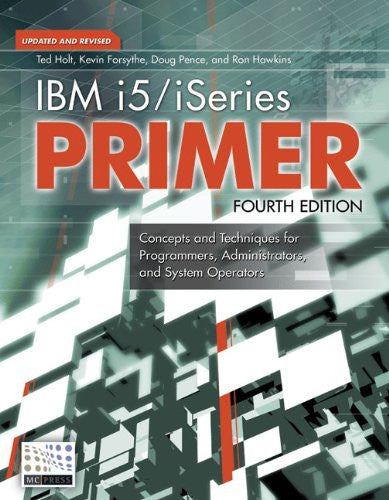A few months back, a couple I know had a problem with the company that holds a mortgage on their house. Fifteen days after the husband had mailed a payment, person A from the mortgage company phoned to ask why he had not made his mortgage payment. My friend checked with his bank, found out that his check had not cleared, and assumed that it had gotten lost in the mail. He stopped payment on the check, called the mortgage company, and told person B that he had stopped payment and was mailing another check. He told person B the number of the original check and requested that they not try to cash the check if it were to show up. My friend enclosed a courteous letter with the second check, giving again all the details and explaining all that had happened. The mortgage company received both checks and cashed both of them. The bank would not pay the first one, of course, and returned the check to the mortgage company with the words
“PAYMENT STOPPED” stamped clearly across the face. Person C from the mortgage company called my acquaintance to tell him that the house payment had bounced because of insufficient funds. My friend patiently explained the entire ordeal and assumed that all was settled. A week later, he got a letter from the mortgage company charging him a $15 fee for insufficient funds.
Here’s another faux pas that I heard recently. A business was trying to implement a software package, but nothing was going right. The software provider could not resolve the problems, and the implementation was six months overdue with no end in sight. While the relationship between the software provider and the customer was at its nadir, the salesman who sold the package reentered the drama. The salesman, who knew nothing of the current state of affairs, asked the customer to serve as a reference to other prospective users of the software.
I wish that stories like these were rare, but they’re all too common in modern America. Back in the mom-and-pop-shop days, business owners knew many—if not all—of their customers personally. To put it another way, a business owner had a relationship with each customer. Nowadays, consumers deal more and more with large corporations, so the chances of establishing business-customer relationships are slim to none.
One way that businesses are trying to address problems like the ones I’ve described is through the use of customer relationship management software, or CRM. The purpose of CRM is to use a computer to build and enhance relationships with customers.
One of the primary goals of CRM is to manage communication. For example, to resolve problems, customers communicate with suppliers in more than one of several ways—by telephone, by fax, by email, or by postal service. A CRM package allows people to store different types of communications digitally so that all information is available to anyone who needs it. If my friend’s mortgage company had had a good CRM system, persons B and C would never have troubled him. If the software provider had had a CRM system, the salesman wouldn’t have exacerbated an already dismal situation.
The ideas behind CRM are sound. We think that customers buy products, but the truth is that they buy relationships. Acquiring a customer is more expensive than keeping a customer. A good relationship with a customer means not only repeat business but also referrals to new customers. To learn more about CRM, visit the CRM Forum (www.crmforum.com). This is one of the best CRM resources I’ve found.
However, so far, CRM isn’t all it’s cracked up to be. If you’ve been making a living in the information processing industry for any length of time, you can probably guess why, even if you know nothing about CRM.
Some problems with CRM are technical. For example, a CRM system is often implemented like a data warehouse. It resides on its own computer, and information from other systems is loaded into it on a periodic basis. Anytime you make one computer feed another, you’re asking for trouble. But the biggest CRM problems are nontechnical. Too many businesses still see implementation of a new system as an IT project rather than a businesswide project. Too many CRM projects are implemented without management buyin. Too many people implement CRM thinking it will compensate for the lack of interest and incompetence of those who deal with customers.
If your people want to help your customers, CRM software can help them do a better job. But the attitude of your people toward your customers may be like that of a university professor I knew, who quipped, “This would be a good place to work if it weren’t for all these students.” If so, CRM software won’t change anything.

















 Business users want new applications now. Market and regulatory pressures require faster application updates and delivery into production. Your IBM i developers may be approaching retirement, and you see no sure way to fill their positions with experienced developers. In addition, you may be caught between maintaining your existing applications and the uncertainty of moving to something new.
Business users want new applications now. Market and regulatory pressures require faster application updates and delivery into production. Your IBM i developers may be approaching retirement, and you see no sure way to fill their positions with experienced developers. In addition, you may be caught between maintaining your existing applications and the uncertainty of moving to something new. IT managers hoping to find new IBM i talent are discovering that the pool of experienced RPG programmers and operators or administrators with intimate knowledge of the operating system and the applications that run on it is small. This begs the question: How will you manage the platform that supports such a big part of your business? This guide offers strategies and software suggestions to help you plan IT staffing and resources and smooth the transition after your AS/400 talent retires. Read on to learn:
IT managers hoping to find new IBM i talent are discovering that the pool of experienced RPG programmers and operators or administrators with intimate knowledge of the operating system and the applications that run on it is small. This begs the question: How will you manage the platform that supports such a big part of your business? This guide offers strategies and software suggestions to help you plan IT staffing and resources and smooth the transition after your AS/400 talent retires. Read on to learn:
LATEST COMMENTS
MC Press Online